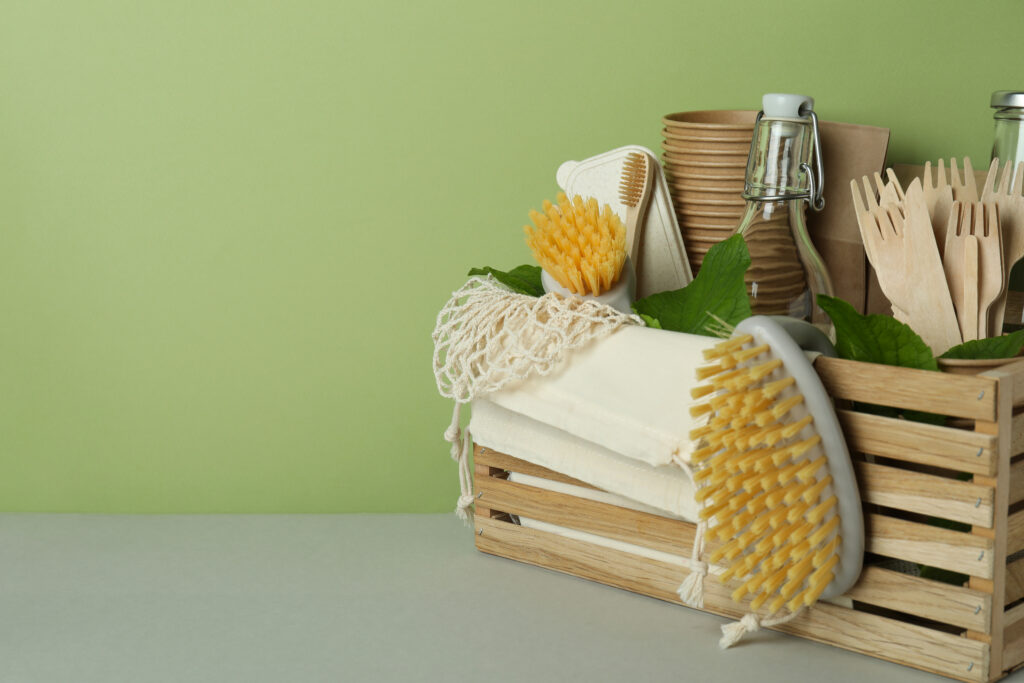The push towards eco-friendly cleaning solutions is a response to growing environmental concerns and the impact of traditional cleaning products on both health and nature. Eco-friendly products provide a sustainable alternative that maintains cleanliness without the use of harsh chemicals. Incorporating natural cleaning methods is not just good for the earth but also safeguards the health of individuals by reducing exposure to toxic substances commonly found in many cleaning agents.
In every room of the house, there are suitable non-toxic cleaning products that can tackle dirt and grime effectively. From the kitchen to the bathroom, natural ingredients like vinegar, baking soda, and essential oils can be used in various combinations to create potent cleansers. These substances break down naturally in the environment, posing less of a threat to water sources and wildlife.
The market for eco-friendly cleaning products has expanded, providing consumers with a plethora of options that align with a sustainable lifestyle. These products are formulated to minimize environmental impact, often featuring biodegradable packaging and plant-based ingredients. By making informed choices about the products used in household cleaning, individuals contribute to a larger movement for environmental preservation and create a safer living space for all inhabitants.
Room-By-Room Guide to Eco-Friendly Cleaning
Eco-friendly cleaning practices are essential for maintaining a healthy home and planet. This guide provides specific strategies for each area of your house using sustainable products and methods.
Kitchen Cleaning Solutions
Countertops and Surfaces: A simple mixture of water, vinegar, and a few drops of lemon essential oil makes an effective all-purpose cleaner. Use a microfiber cloth to apply this solution; it captures dirt and bacteria without the need for harsh chemicals.
Dishes: Opt for biodegradable dish soaps with plant-derived ingredients to lessen environmental impact while tackling grease. Baking soda can be used as a scrubbing agent for tough food remnants.
- Appliance Cleaning:
- Fridge: Wipe with a mix of hot water and baking soda.
- Oven: A paste of baking soda and water, left overnight, helps remove grime.
Bathroom Cleaning Strategies
Toilet Cleaning: Choose eco-friendly toilet bowl cleaners with biodegradable formulas. For tough stains, using a pumice stone can be effective and eco-conscious.
Shower and Tub: A natural lime scale remover, such as diluted vinegar, works well against water spots. Spray and leave a biodegradable shower cleaner, then scrub with a microfiber cloth.
- Sink and Mirror: Use eco glass cleaner for streak-free mirrors and chrome fixtures without harmful fumes.
Living Areas Refresh Routine
Dusting: Employ microfiber cloths to capture dust without the need for spray polish. For wooden furniture, a product like Method Daily Wood Cleaner provides a plant-based alternative to conventional products.
Flooring: A diluted vinegar solution can clean most hard floors effectively. For carpets, sprinkle baking soda before vacuuming to neutralize odors.
- Upholstery: Spot clean with eco-friendly soap and water, or use a homemade solution of equal parts water and vinegar for general freshening.
Laundry Care with the Environment in Mind
Detergent: Select a best-in-market eco-friendly laundry detergent like Method Liquid Laundry Detergent. Look for plant-derived ingredients and a biodegradable formula.
Clothing Maintenance: Wool dryer balls reduce drying time and can replace disposable dryer sheets. A homemade stain remover made from baking soda and hydrogen peroxide can tackle most stains.
- Laundry Practices:
- Sort clothes to wash full loads efficiently.
- Cold water washes save energy and are gentler on clothes.
Eco-Friendly Cleaning Tools and Ingredients
Making the switch to eco-friendly cleaning involves using tools and ingredients that are sustainable, effective, and kind to the environment. These alternatives not only have a lower environmental impact but are often healthier for the home as well.
Sustainable Cleaning Utensils
Dish Brushes: Opt for dish brushes with bamboo handles and natural, biodegradable bristles instead of plastic. Bamboo is a fast-growing, sustainable resource that degrades naturally.
Microfibre Cloths: High-quality microfibre cloths can be washed and reused numerous times, reducing the need for single-use paper towels. Prefer brands offering cloths made from recycled materials.
Cellulose Sponges: A eco-friendlier sponge choice is one made from cellulose, which is biodegradable and derived from plant fibers.
Natural Ingredients for Effective Cleaning
Glass Cleaner: Create an effective, eco-friendly glass cleaner using distilled white vinegar and water. Mix in a spray bottle for streak-free results. Ensure the bottle is recyclable or made from recycled materials.
Baking Soda and Vinegar: Unleash the cleaning power of baking soda and distilled white vinegar. These effective cleansers are free from harmful phosphates, phthalates, and harsh chemicals.
Citric Acid: As a natural descaler and cleaner, citric acid effectively tackles hard water stains and buildup.
Essential Oils: Incorporate essential oils for their natural antiseptic properties and fragrance-free option—blend with plant-based ingredients for a homemade eco-friendly cleaner.
Concentrates: Small steps like purchasing concentrated cleaning solutions from eco-conscious brands like Blueland or Grove Collaborative help in reducing packaging waste. These concentrates are mixed with water at home, reducing carbon emissions due to lighter shipping weight.
By integrating these natural cleaning ingredients and sustainable utensils, every room in the house can be maintained in an environmentally friendly manner, without compromising on cleanliness.

